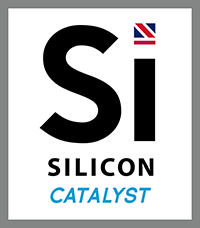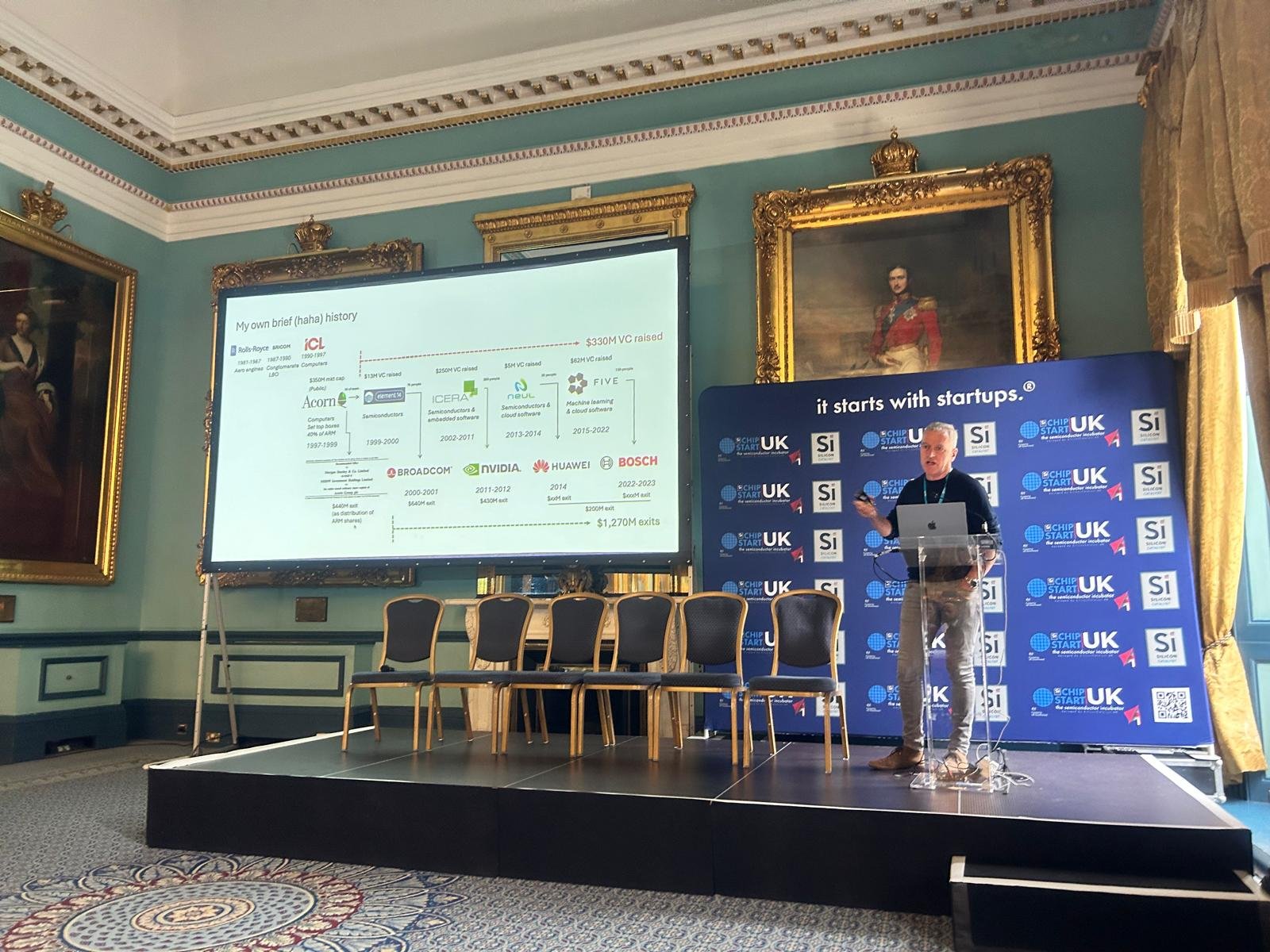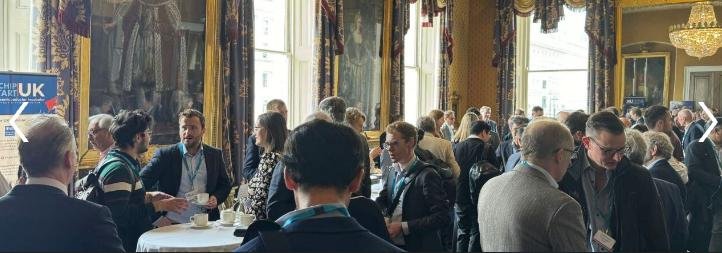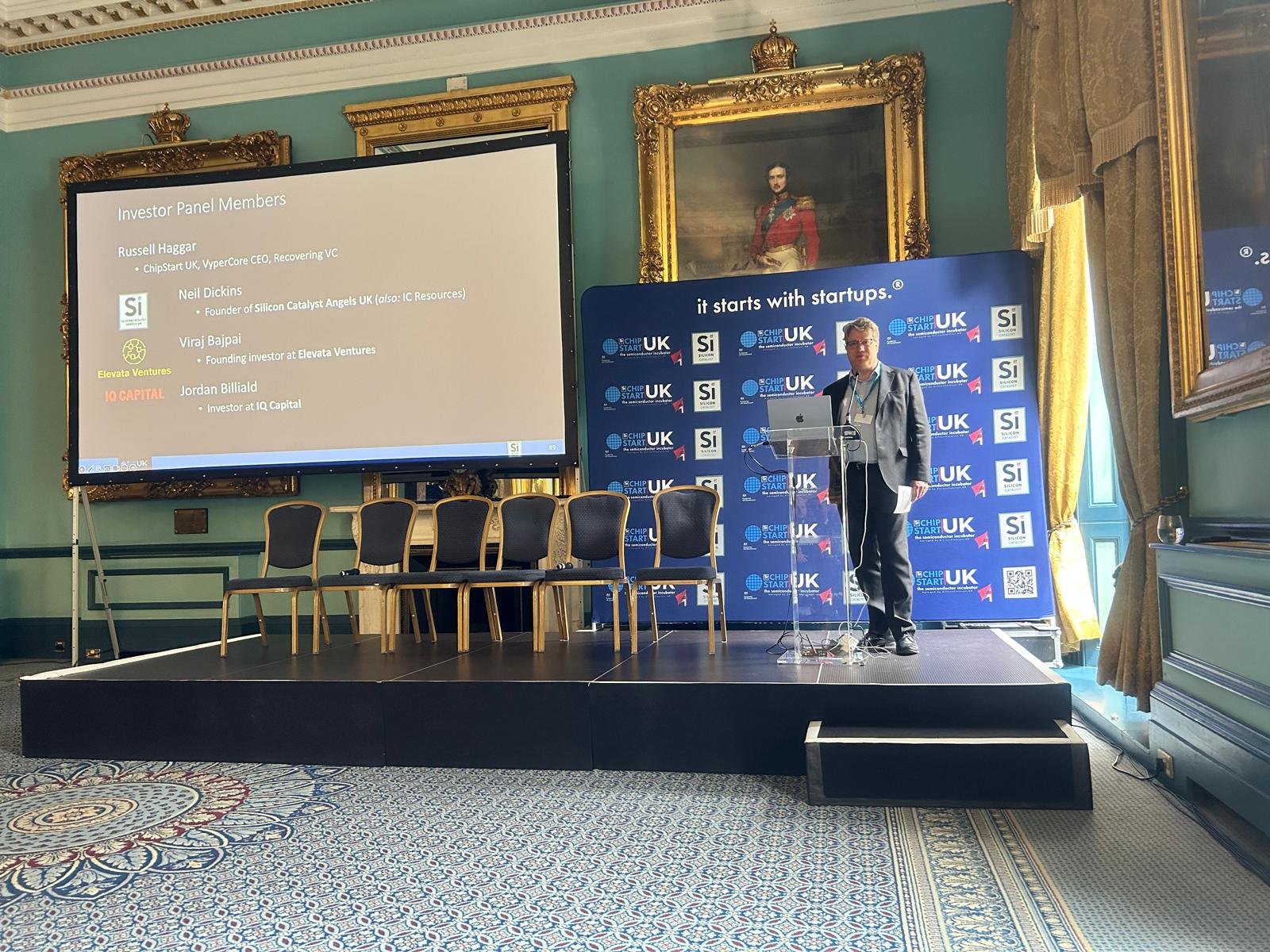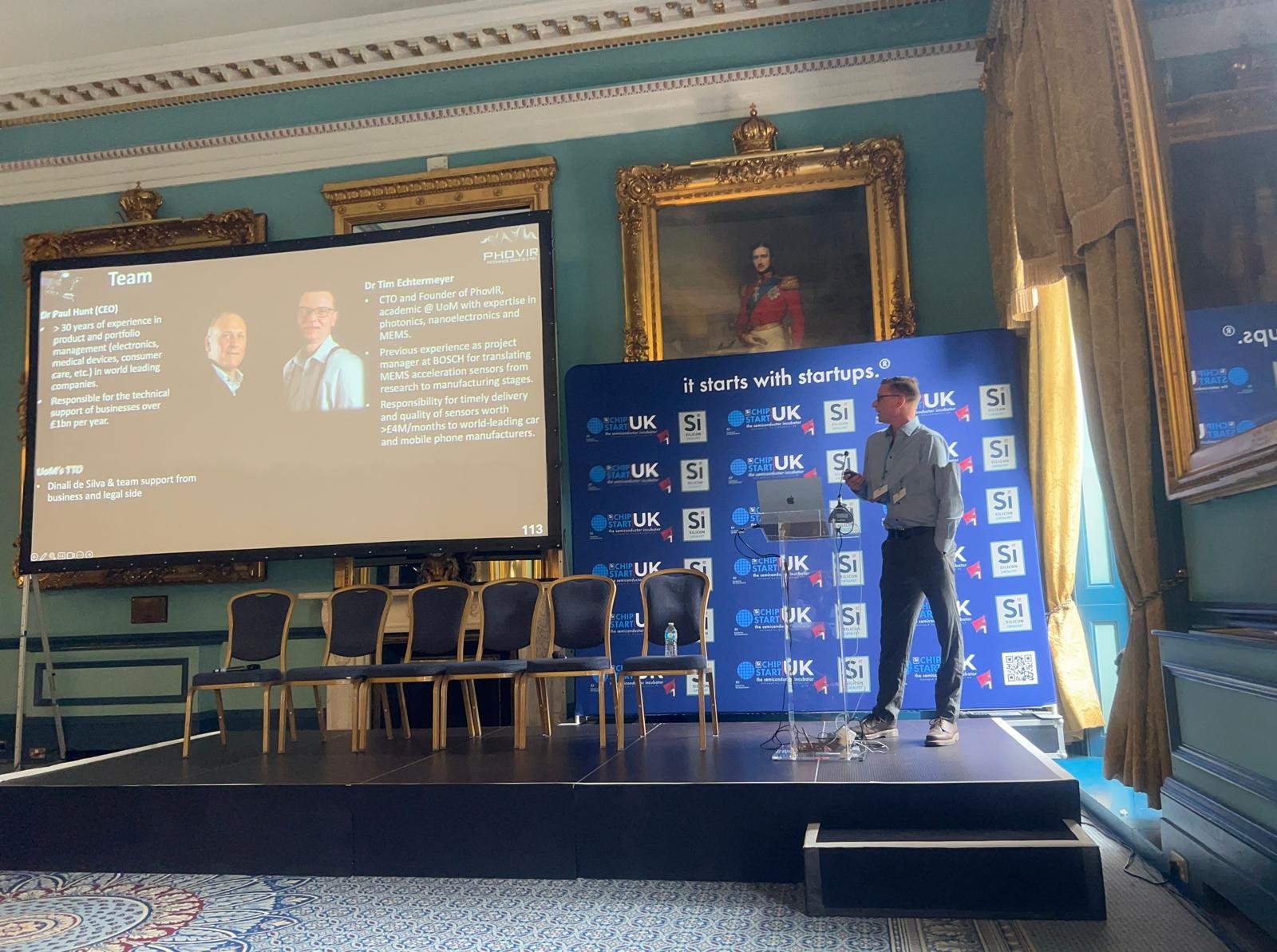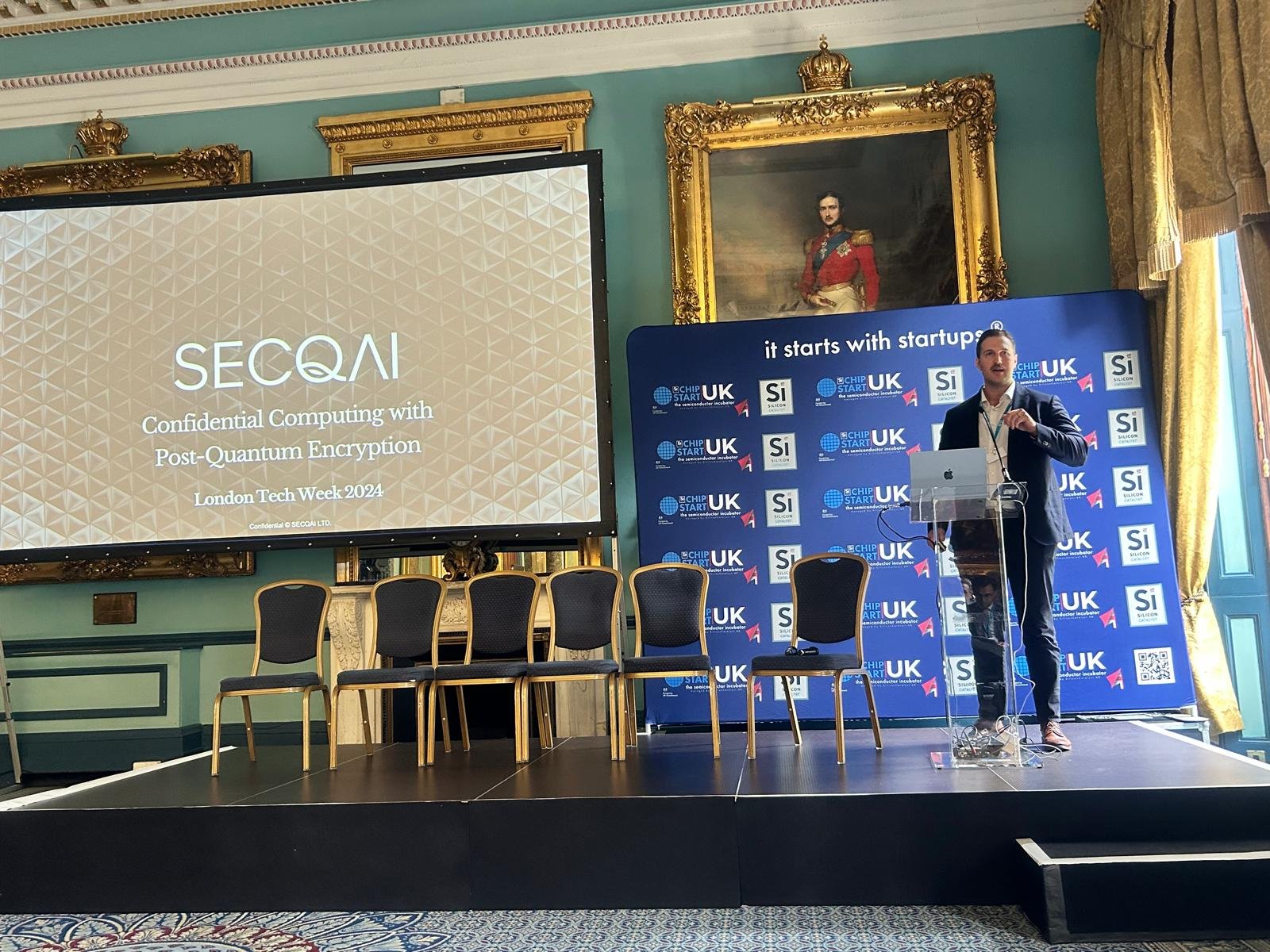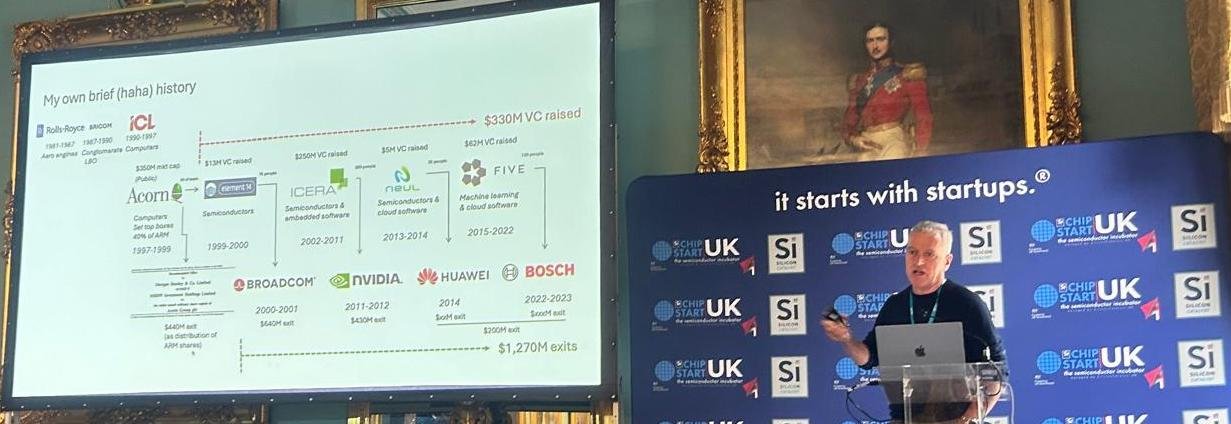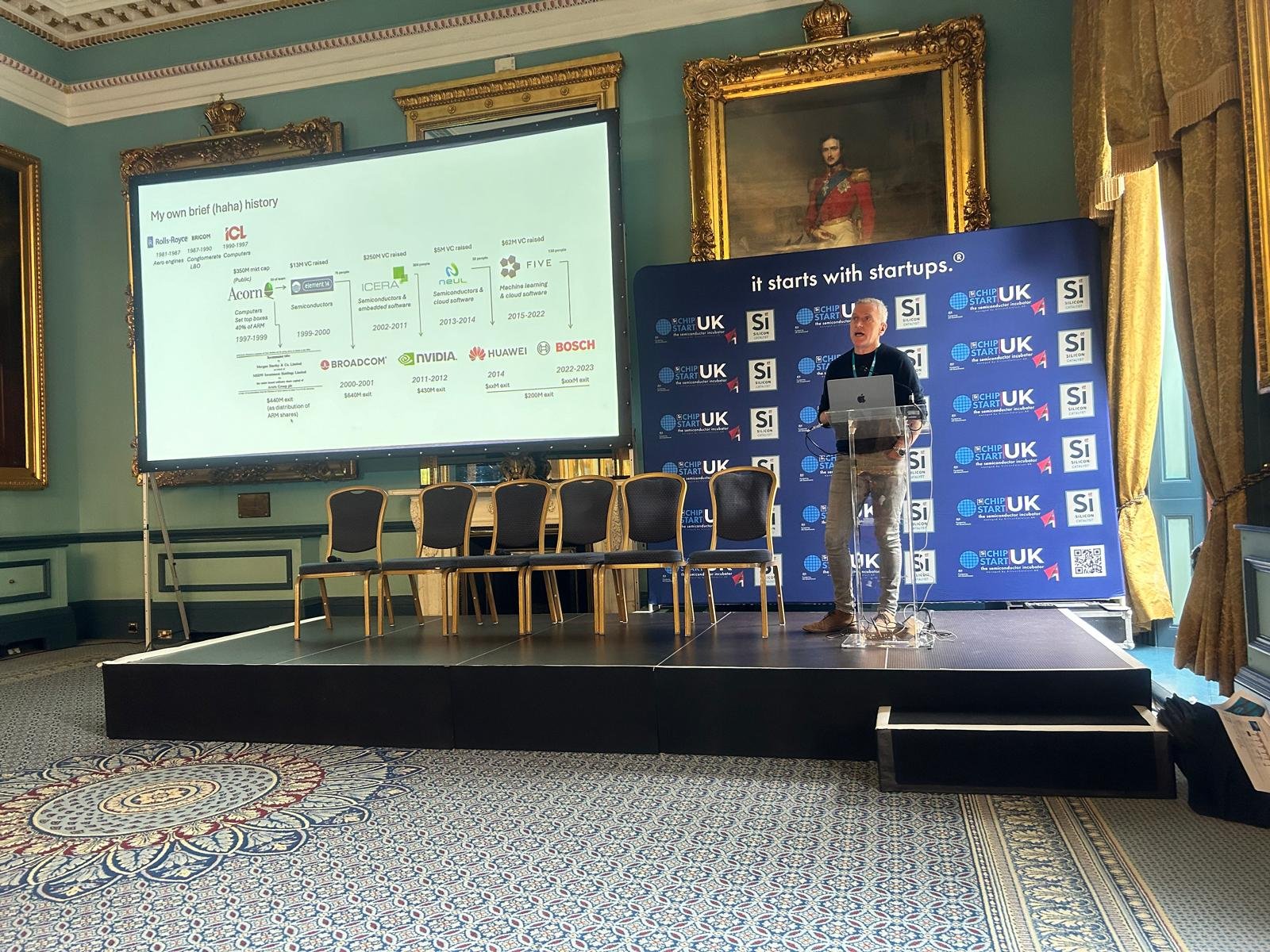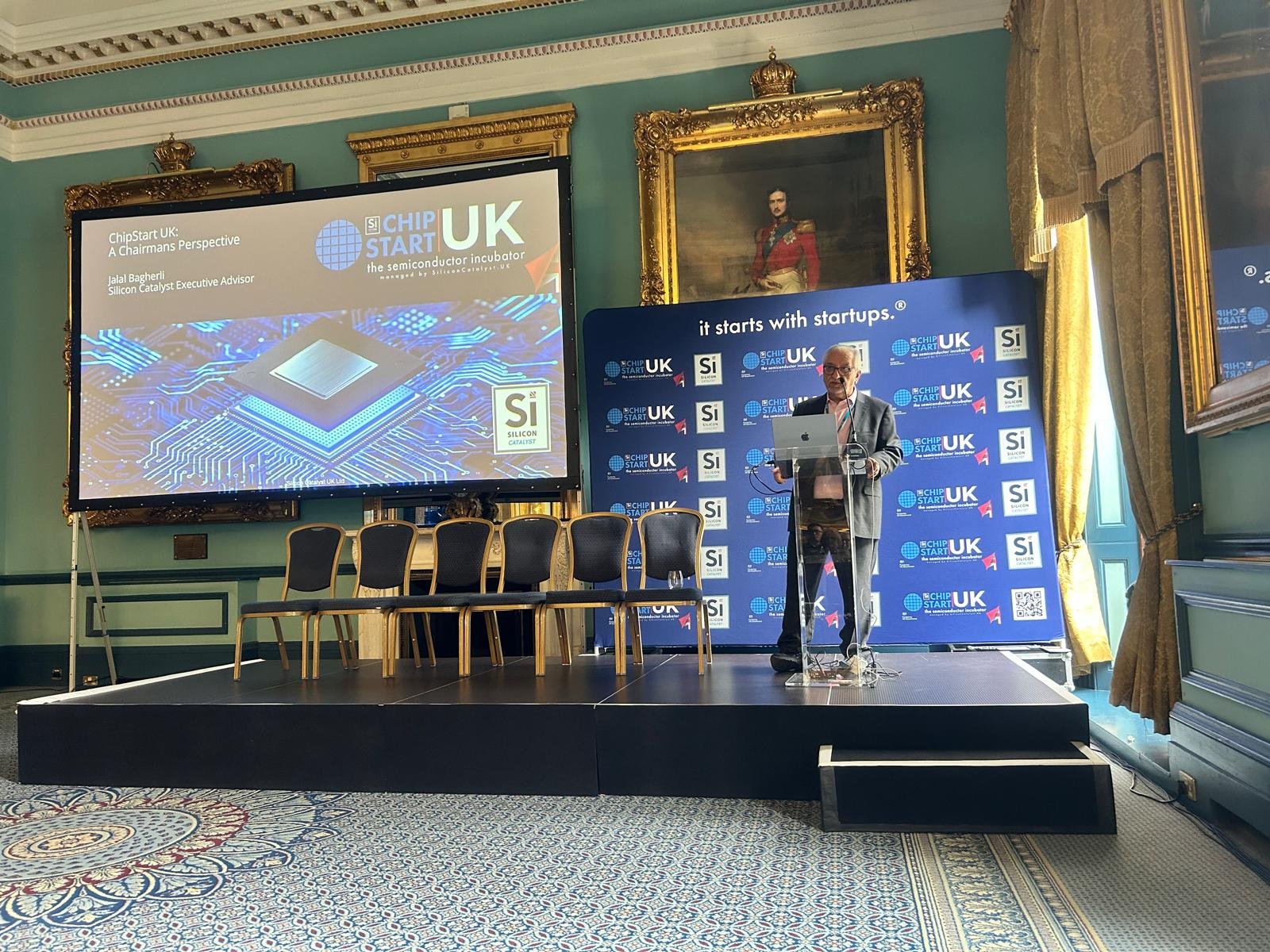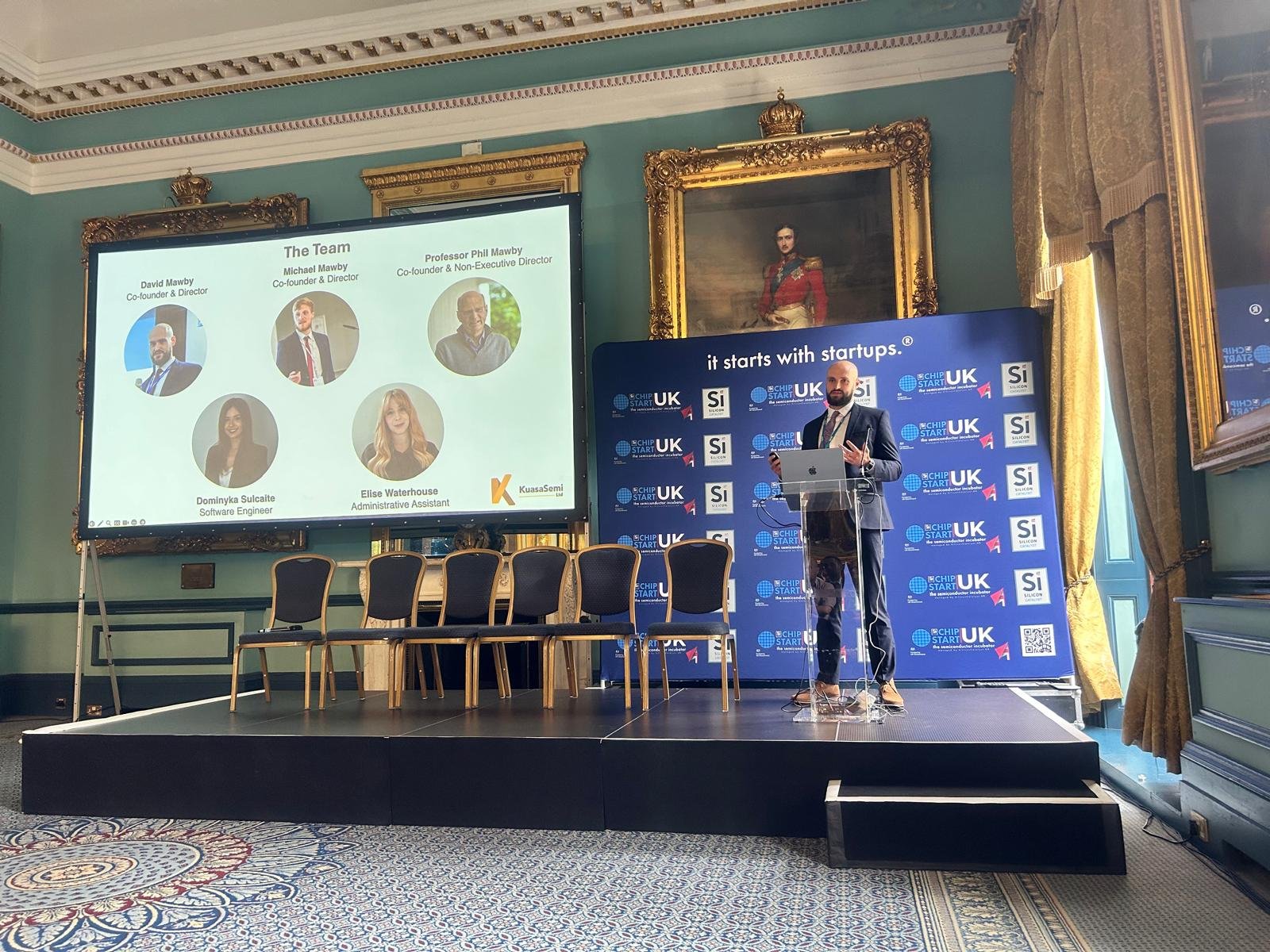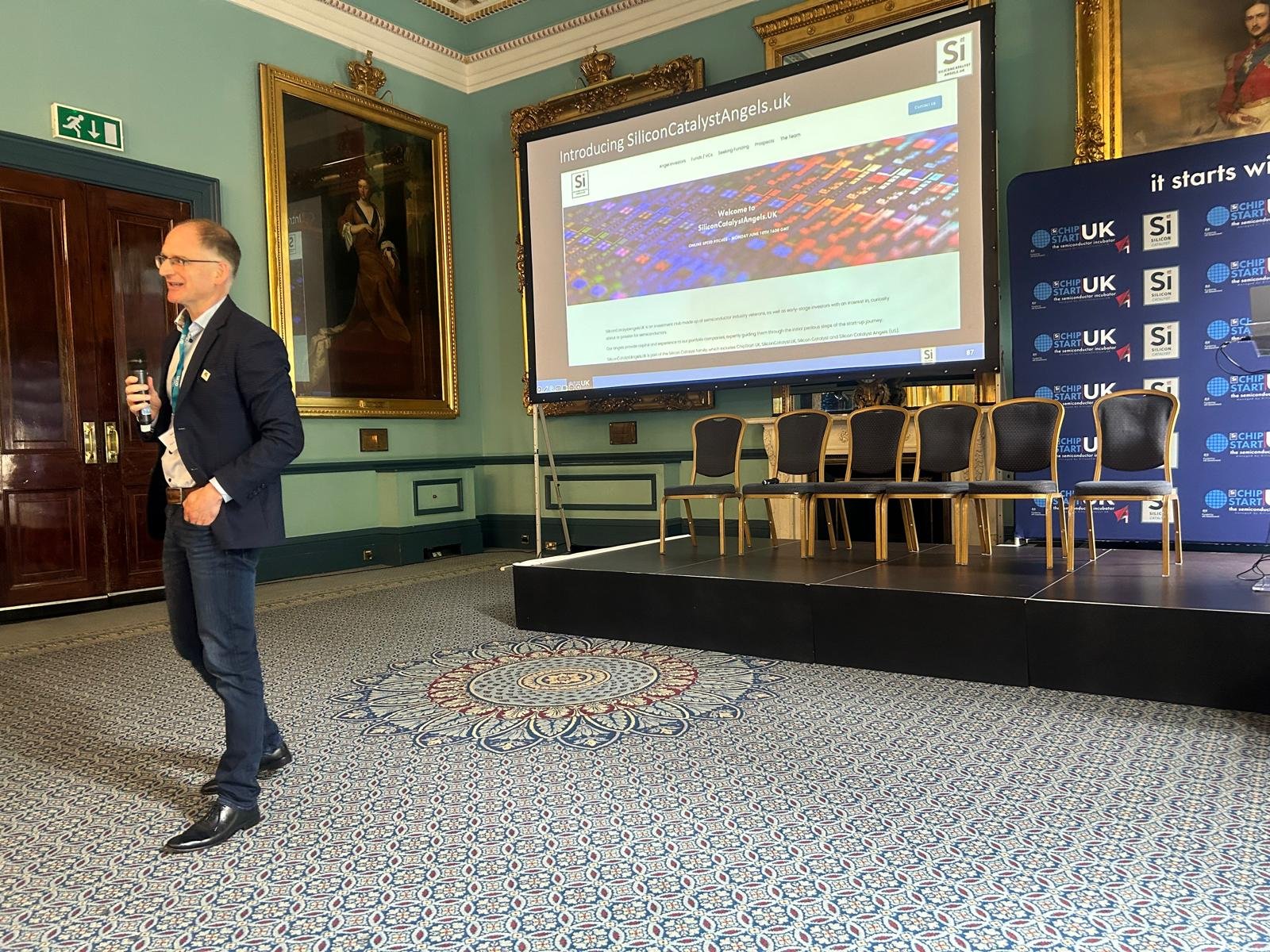If you are a seed-stage UK company with less than US$1.5M in funding and want to learn more about the UK funded incubator, click the ChipStart UK button below.
If you are a startup company with more than US$1.5M of funding and are interested in learning more about the Silicon Catalyst Two-Year accelerator, click the button below.
ChipStart UK Showcase: A Celebration of UK Semiconductor Startups
SiliconCatalyst.UK is delighted to showcase the progress of Cohort #2 & introduction of Cohort #3 from the ChipStart UK semiconductor incubator
Join us at the iconic Royal Institution in the heart of Mayfair to celebrate the very best of early stage UK semiconductor startups. Our now proven and successful incubation focussed on preparing the startups to attract the right investment at the right time has delivered over the last two cohorts approaching £30M of venture capital and angel funding closed.
This event will bring together investors, semiconductor industry leaders, government policy makers and UK semiconductor startups. Our agenda is packed with the next hyperscalers to lead this industry interlaced with the wisdom and experience of those that have gone before.
We will be concluding the second Cohort and introducing the third cohort of the ChipStart UK early stage semiconductor startup incubator programme.
Our graduating startups have experienced intensive global semiconductor industry training, executive advice and enjoyed complete access to the Silicon Catalyst ecosystem of free EDA tools, Design IP and access to advanced node semiconductor foundries.
Highlights of this event will be:
Keynote address by Giorgia Longobardi, CEO and co-founder, Cambridge GaN Devices
Keynote address by former President and co-founder of Arm, Tudor Brown
Over 20 UK semiconductor startups from Cohort #2 and Cohort #3 will present 5 minute pitches
Panel sessions with leading UK semiconductor contributors
Forming, Storming, Norming and Performing of Semiconductor Startups
University of Manchester
We closed out 2024 in style on Tuesday with another SiliconCatalyst.UK Forming, Storming, Norming and Performing of semiconductor startups event, hosted in the recently refurbished Renold Building at the The University of Manchester.
In the first keynote Prof Richard Curry gave us whirlwind tour through a small selection of the semiconductor research being done in Manchester, from ultra-pure 28Si spheres through to the UoM contribution to the Large Hadron Collider by way of the amazing SpiNNaker project, there is no doubt that there is semiconductor depth and breadth in the university base.
Next up was the deeply impressive Stan Boland, with a presentation that actually is more akin to a thesis, analysing the relative successes of the European and US semiconductor industries and what we need to do to turn things around, deeply thought provoking, it drove many conversations for the rest of the day.
Things didn't let up, we were honoured to have a panel session with three Arm founders John Biggs, Pete Harrod and Jamie Urquhart, discussing the importance of the global ecosystem. A great opportunity for our cohort companies to hear from those who have been through the startup process and taken it all the way. Truly inspirational.
Great startups are built with great teams, without a great team nothing happens, but it's hard for startups. In the semiconductor space the founders frequently have a deep technical background and take on the role of CEO, but when is the right time for those founders to step aside and let someone else take the reigns, or indeed should they? Anne-Sofie Lagander tackled these issues head on in a compelling and frank discussion of how to develop teams in tech.
After a short break we heard from Joseph Wilson from Optalysys describing the challenges of crossing the TRL chasm and how Optalysys has done that. It really brings home just what a long journey there is between the lab concept and deploying product at scale in the market. Wonderful to see the amazing technology that Optalysys have and the progress they are making.
After all of this inspiration, it was time for our 10 ChipStart UK cohort companies to get up on stage and present their 5 minute/3 slide pitch. We heard pitches from Qontrol Ltd., PhovIR Technologies, Chevin Technology, Visionchip, KuasaSemi Ltd, Apitronix Semiconductor, Metahelios ltd, Heronic Technologies and Nanomation.
Having heard the pitches, it was appropriate that the next person on stage was Gareth Llewellyn of Northern Gritstone , who gave a brief overview of Northern Gritstone and then moved in to solid advice for startups looking to raise. It is invaluable for any startup to see the funding process through the eyes of a VC.
And finally, but very definitely by no means least, Malcolm Penn of Future Horizons Malcolm presented on the topic of "How geopolitics are shaping the global semiconductor industry", with decades of industry analysis and experience Malcolm really brings the harsh light of reality to bear.
A truly wonderful day, that was rounded off by a drinks reception featuring Castello Redmond, which had managed to make it's way to Manchester even though Sean Redmond was unable to attend.
As always, these events are the sum of the efforts of many people, so huge thanks must go to all of our speakers, our sponsors for the event (Arm, Cadence, IC Resources, Siemens and Synopsys Inc) and of course our hosts the The University of Manchester, the team at the University of Manchester Innovation Factory (Gareth Jones) and the superb team at the Renold Building that "just made stuff happen" all day.
Thank you to all that attended and we look forward to seeing you all again in 2025.
Government scheme helps UK chip start-ups raise £10 million: From new fertility treatments to improving the efficiency of AI, British semiconductor innovators are reshaping global technology
Backing for firms will make chips to help phone batteries last longer, and train AI models with less energy.
Second round of companies to receive support also announced, including chip designers to make more efficient AI systems, and make wearable hormone monitoring patches for fertility treatment.
Government-backed chip support service helped semiconductor start-ups close over £10 million of funding from private investors and grants, with a total of nearly £20 million in commitments.
Eleven semiconductor start-ups working on chips that make AI more efficient and create new lifesaving healthcare tech have joined a government-backed support service to help turn their research into business realities.
Semiconductor chips are fundamental to the technology that we interact with daily, underpinning everything from smartphones to AI and advanced medical devices.
The companies will be the second group to go through ChipStart, an incubator programme launched in October 2023 with £1.3 million of backing to nurture a new generation of chip designers and crowd in investment totalling nearly £20 million in commitments from private investment and grants to help drive economic growth.
POM Health is among the companies joining the second round of the programme. It is pioneering the use of semiconductors to create a wearable patch for continuous hormone monitoring. This technology could transform healthcare by enhancing fertility treatments, offering women precise, real-time insights into their hormonal health.
HeronIC, another new joiner to the programme, has developed a software design tool that quickly creates custom chips for AI applications, boosting their energy efficiency and increasing performance for complex tasks.
Minister for Science, Patrick Vallance said:
"Innovation in semiconductors can underpin technological advancements in every field, from AI to consumer devices and healthtech. British researchers across the country are leading in R&D in this essential field and the support we are delivering through ChipStart is helping their ideas become reality.
“As well as the commercial success of the first cohort, the innovations ChipStart is supporting could help to change lives, from helping to develop new fertility treatments to optimising AI and extending the battery life of devices we use every day. We are making sure British science leadership converts to help address critical global challenges and drive economic growth.”
Following a first round that saw participants close over £10 million of funding from private investors and grants, with a total of nearly £20 million in commitments being finalised, ChipStart will continue to provide these early-stage semiconductor companies with:
Access to commercial design capability: Including the full Silicon Catalyst ecosystem, design tools, IP, and prototyping capability.
Commercial expertise and mentorship: Startups receive guidance from experienced semiconductor industry executives and connections to Silicon Catalyst’s global network.
Exposure to private capital: Access to over 270 Silicon Catalyst advisors, Strategic Partners, and an extensive network of investment groups.
On completion, the pilot will provide the UK’s semiconductor industry with a pipeline of new startups that have an innovative product, route to market, and are a foundation for future growth, including routes to future seed funding.
Sean Redmond, Managing Partner, Silicon Catalyst UK said:
"ChipStart UK is leveraging the UK’s position as a global centre of semiconductor research to transform academic innovations into market-ready technologies.
“Nine of the eleven firms in the next group come from UK universities and are set to build on the success of the first cohort, which secured a strong position in the international semiconductor supply chain through private funding and global partnerships. After nine months of rigorous training, ChipStart has created over thirty new UK semiconductor executives, ready to scale their businesses towards global success."
Dorian Haci, CEO and Co-Founder of MintNeuro:
“The ChipStart UK programme, along with the Silicon Catalyst ecosystem, has equipped MintNeuro with essential design and manufacturing tools and a network of semiconductor-focused mentors and advisors, crucial for our go-to-market strategy.
“Since joining the programme, we have secured additional funding and formed key partnerships. These developments accelerate the commercialisation of our pioneering neural implant technologies, aimed at improving the lives of millions suffering from neurological conditions.”
After receiving this support over the last year, Vaire Computing raised $4.5m to develop their revolutionary chips that use nearly no power at all. This innovation in energy efficiency has the potential to significantly extend smartphone batter life. With Vaire’s semiconductors, smartphones could soon only need charging once a month.
Another cohort member, Wave Photonics, closed an early funding round at £4.5m for their tool which simplifies the design of highly complex photonic chips, chips that use light instead of electricity, meaning they operate at much faster speeds and use much less power. This technology could transform a wide range of industries by enabling faster, more energy-efficient communications, improving diagnostic capabilities in healthcare, and enhancing data processing in everything from data centres to autonomous vehicles.
Rodolfo Rosini, cofounder and CEO, Vaire Computing said:
“As any founder will tell you, building a company in one of the most dynamic technology industries requires a tremendous amount of grit, ingenuity and support.
“The networking opportunities provided by the Silicon Catalyst.UK ChipStart programme enabled us to execute on our vision and helped to set our company on a trajectory for long-term success. I strongly believe that expanding the program’s role in the near term would be extremely beneficial for the UK chip industry.”
James Lee, CEO, Wave Photonics said:
“Having raised funding during the programme, Wave Photonics is now deploying its technology to enable an explosion of integrated photonics applications beyond datacoms, including biosensing and quantum computing.
“The ChipStart programme, run by semiconductor industry experts from Silicon Catalyst UK, helped us to learn from the development of the semiconductor industry and apply these lessons to the young, but growing, integrated photonics industry. The individual mentors and in-kind partnerships gave us easy access to expertise and tooling that would be difficult to find elsewhere.”
Third cohort of ChipStart UK companies
Chipletti - Chipletti is a UK-based fabless semiconductor design company focused on advancing compute performance through innovative 3D memory solutions.
Ethicronics - From Defence to Datacenter: low-level software securing data-in-use and at-rest - starting with hardware assurance
Kelvin Quantum - Kelvin Quantum builds electronic circuits and systems operating in extreme environments to enable revolutionary quantum technologies.
Kāhu SiliconBio - We provide real-time liquid intelligence on target chemical contaminants through a novel bioelectronic chip-based interface.
Prospectral - Transforming the way machines see.
quadrAI
Quantopticon - Quantopticon is a software start-up providing design and simulation solutions for quantum photonics.
Rayd Technologies - Pushing the boundaries of compute with brain-inspired hardware & algorithms
RX WaTT - Delivering battery-free and maintenance-free sensing using reliable RF power and data delivery and sensing
SiDesign Works - SiDesign Works is an Oxford-based startup developing advanced RF and mmWave ICs for satellite communications.
Smith Optical - Smith Optical's Wavemixing technology enables the first truly transparent, daylight-bright augmented reality displays, seamlessly merging the digital and physical worlds.
Xen Quantum - Xen Quantum is building technology to make quantum communications more practical.
Companies that have joined the second cohort of ChipStart UK
Apitronix Semiconductor – a new class of microprocessor developed specifically for embedded workloads
HeronIC – we deliver state-of-the-art bespoke accelerator architectures for AI
KuasaSemi – a new, user-friendly, affordable solution specifically designed for Wide Bandgap (WBG) technologies
Metahelios – providing completely new imaging technologies for several industries through a nanotechnological approach
Nanomation – enabling industries to unlock the transformative power of nanomaterials
PhovIR Technologies – infrared spectroscopy in the palm of your hand
POM Health – medical-grade hormone monitor
Qontrol – the future is photonic. Our mission is to power it with clever electronics
The promising semiconductor startups who represented the first cohort of ChipStart UK
Blueshift Memory – new memory architecture accelerating compute and reducing energy consumption, overcoming the Von Neumann bottleneck
Finchetto – developing the world’s first entirely passive, packet aware, network switch for telecoms, data centres, and high-performance compute users to significantly improve performance and lower energy consumption
HIDRA Vision – 100x faster, 100% wafer inspection for compound semiconductor device fabrication
HyperCIM – unifying compute and memory with a 100% enterprise software compatible low-power processor in memory
Literal Labs – 10,000x lower energy and 1,000x faster inferencing through propositional logic and Tsetlin machines
MintNeuro – empowering next-generation neural implants with advanced semiconductor technology
RED Semiconductor – reducing power and improving security with Vector Instruction Set Computing
SECQAI – securing computation and communication to protect you from the threats of today and tomorrow
Singular Photonics – developing next generation high performance SPAD sensors and cameras for scientific, medical and wearable applications
Vaire – developing near-zero energy chips with reversible computing
Wave Photonics – enabling rapid development for integrated photonic products.
SiliconCatalyst.UK Management Team
Mike Staplehurst
Managing Partner
SILICON STARTUP SOLUTIONS
A JOURNAL PUBLISHED BY SILICONCATALYST.UK
VOLUME 01
ChipStart UK Announced
Guest Article Product-Market Fit
Silicon Catalyst Interview with
Jem Davis, Former VP of Tech. at ArmA conversation with SiliconCatalyst.UK Advisor
Dr. Jalal BagherliA conversation with SiliconCatalyst.UK Advisor
John Goodenough, Ph.d. Department Chair at University of Sheffield
